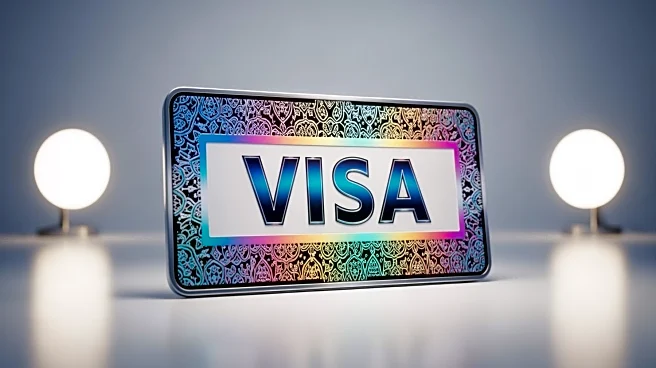What's Happening?
The U.S. Citizenship and Immigration Services (USCIS) has clarified the implementation of a $100,000 fee for H-1B visa applicants, which was announced in September. This fee applies specifically to new
applicants residing outside the United States. The fee is required for applications filed on or after September 21, 2025, for those who are not current H-1B visa holders. The fee also applies to petitions requesting consular notification, port of entry notification, or pre-flight inspection for aliens in the U.S. However, the fee does not apply to applicants transitioning from another visa type, such as an F-1 student visa, to H-1B status. The Trump administration introduced this fee to curb perceived abuses of the H-1B program and to encourage the hiring of American workers.
Why It's Important?
The introduction of the $100,000 fee for H-1B visas is significant as it could reshape hiring practices in the U.S., particularly in industries reliant on skilled foreign labor, such as technology. The fee aims to deter companies from hiring foreign workers at lower wages, potentially opening up more opportunities for domestic workers. However, the policy has faced legal challenges, with the U.S. Chamber of Commerce and other groups filing lawsuits against the administration, arguing that the fee is unlawful. The outcome of these legal challenges could have broad implications for immigration policy and the U.S. labor market.
What's Next?
The legal challenges against the fee are ongoing, with the U.S. Chamber of Commerce and a coalition of healthcare groups and labor unions contesting its legality. The resolution of these lawsuits will determine the future of the fee and its impact on the H-1B visa program. Companies and potential visa applicants are closely monitoring the situation, as the outcome could influence hiring strategies and immigration policies.










